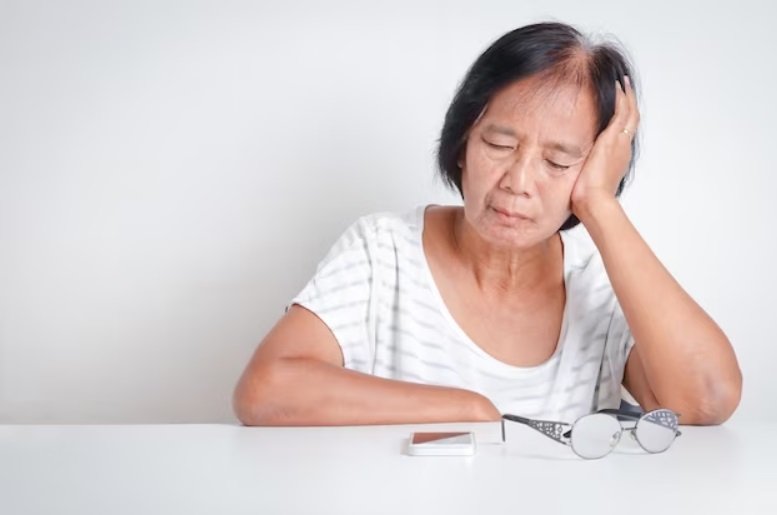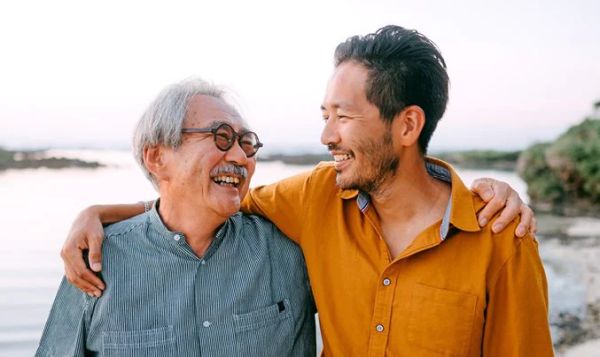Overcoming Old Age Anxiety: Embracing a Fulfilling Journey Understanding the Challenges of Old Age Anxiety…
Don’t dismiss depression.
 Depression is more frequent than ever among elderly persons. The most serious threat is that many people do not seek help. We don’t dismiss depression as this illness needs time and attention.
Depression is more frequent than ever among elderly persons. The most serious threat is that many people do not seek help. We don’t dismiss depression as this illness needs time and attention.Depression may become more widespread as individuals age, but probably the greatest hazard to the mental health of older persons is that many of them fail to recognize its symptoms and severity.
According to a 2020 study done by GeneSight Mental Health Monitor, 61 percent of those aged 65 and older who suspect they may have depression do not seek treatment. One-third of those polled believe they can “snap out of it” on their own.
This all-too-common attitude can cause many people to suffer unnecessarily from a treatable condition.
“Depression still carries a stigma,” says Dr. Caroline Bader, a geriatric psychiatrist at Harvard-affiliated McLean Hospital. “However, it’s a common and treatable disease, and elderly people should know they’re not alone and don’t have to suffer in silence.”
Experiencing new life changes
Older folks frequently resist the reality of depression because they dismiss it as just another health issue that comes with age, which isn’t always the case. “Being depressed is not a normal aspect of aging,” says Dr. Bader.
While depression affects both men and women, older men are more vulnerable. For much of their lives, today’s older men were breadwinners, so their energy, purpose, and identity were all wrapped up in work.
According to Dr. Bader, many people have lost their sense of self in retirement. “For many men, it’s a significant change, and they don’t know how to fill that place,” she says. “This can lead to a sense of meaninglessness and hopelessness, which frequently contributes to depression.”
Seeking medical attention
The first step in dealing with depression is to recognize and not ignore the symptoms (see “Look for the signs”). If any of these apply to you, consult your doctor. He or she can make a diagnosis and, if necessary, prescribe antidepressants. Many people respond favorably to medicine and may prefer it as a therapy option.
“Opening out to friends and family can also help you gain perspective on whether depressive symptoms have become a problem in your life and you need to seek additional help,” Dr. Bader explains.
Look for the clues.
If you have several of the following symptoms on most days for at least two weeks, you may be depressed and should seek help:
- loss of pleasure in loved hobbies
- persistently depressed or “empty” mood
- boredom and disinterest have increased.
- tiredness or energy deficiency
- agitation or restlessness
- Insomnia or spending excessive amounts of time in bed
- sentiments of despondency or pessimism
- difficulty concentrating or making decisions
- Weight gain or reduction that is unintended.
There are various options for dealing with and managing your problems. Here are some ideas to get you started. “When you identify depression as a legitimate and curable condition, you may start to improve many parts of your life,” Dr. Bader adds.
Make minor adjustments. Adding structure to your everyday life can help prevent and even treat a variety of common illnesses. “You don’t have to make drastic adjustments,” Dr. Bader explains. “Small changes can frequently have a big impact.”
Investigate online psychotherapy. The epidemic has resulted in an increase in telemedicine, particularly online therapy. “Talk therapy may be a beneficial experience for many people and can help address issues that are causing symptoms,” Dr. Bader explains. “Plus, this approach can be an option for guys who are more hesitant to do in-person counseling.” Ask your doctor for a referral to a mental health professional, and inquire about online sessions. If the therapist does not provide them, request the names of colleagues who do.



